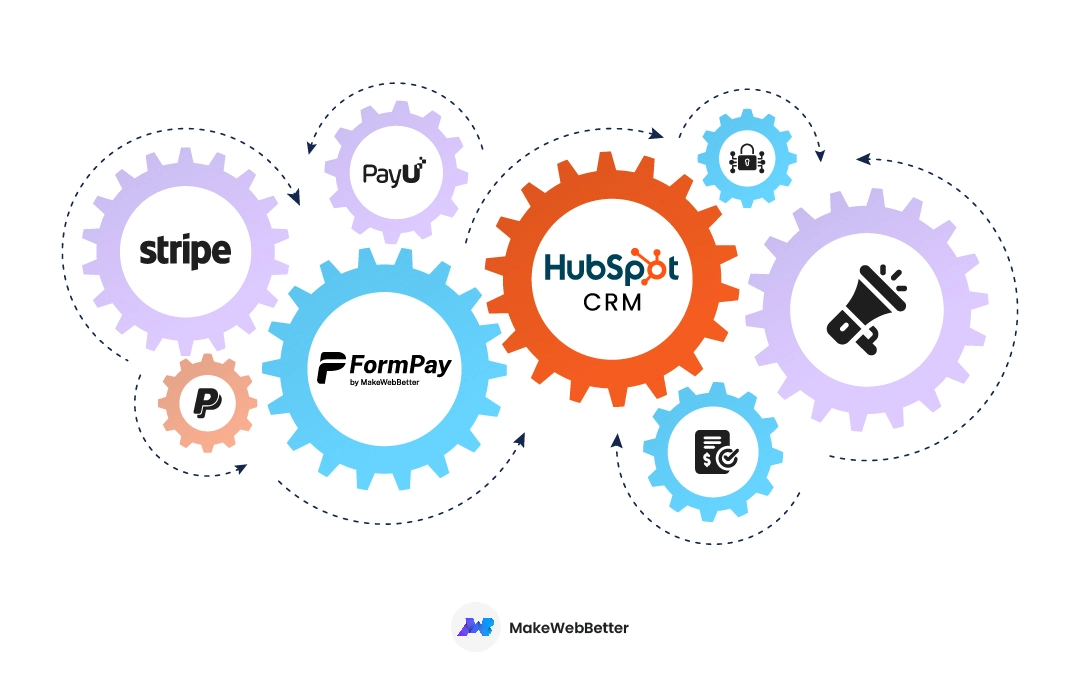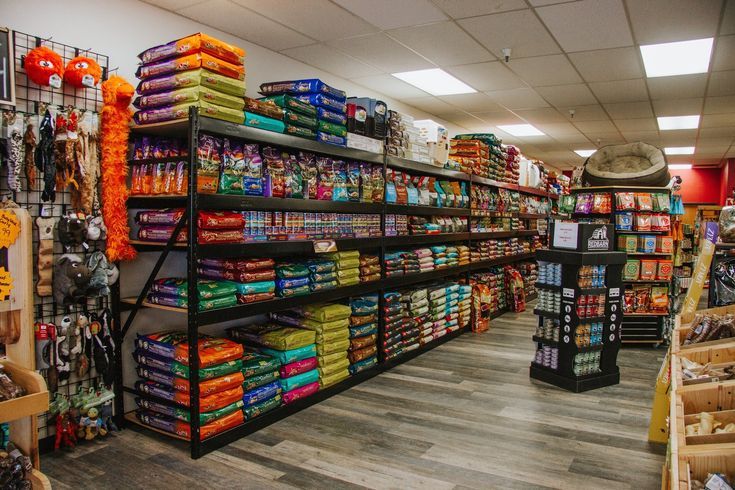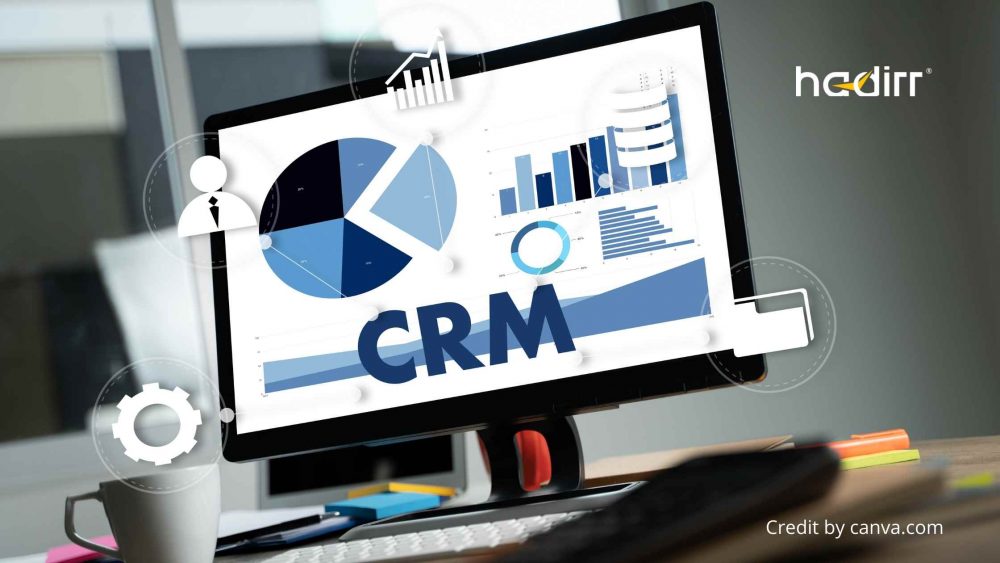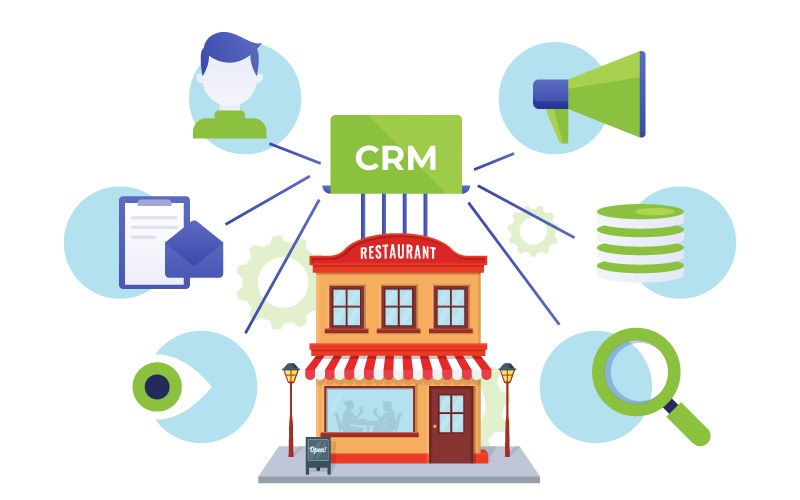Rev Up Your Revenue: The Ultimate CRM Guide for Small Mechanics
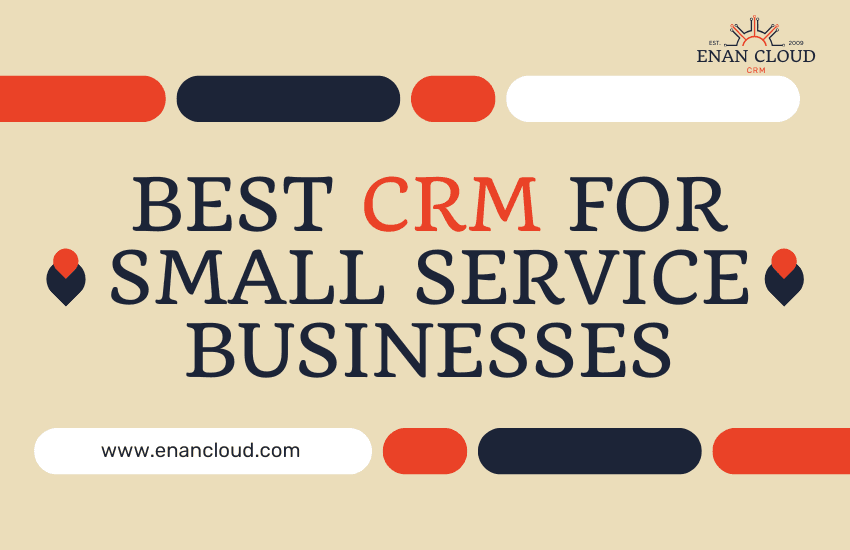
Rev Up Your Revenue: The Ultimate CRM Guide for Small Mechanics
Running a small mechanic shop is no easy feat. You’re juggling a thousand different things – from diagnosing engine troubles to ordering parts, managing appointments, and, of course, keeping your customers happy. In the whirlwind of it all, it’s easy for things to slip through the cracks. That’s where a Customer Relationship Management (CRM) system comes in. Think of it as your shop’s digital assistant, helping you stay organized, build stronger customer relationships, and ultimately, boost your bottom line. But with so many CRM options out there, how do you choose the best one for your small mechanic shop? This guide will break it down, helping you navigate the CRM landscape and find the perfect fit.
Why Your Small Mechanic Shop Needs a CRM
You might be thinking, “I’m a small shop; do I really need a CRM?” The answer is a resounding yes! Here’s why:
- Improved Customer Relationships: A CRM centralizes all your customer information – contact details, vehicle history, service records, preferences, and communication history. This allows you to personalize interactions, remember details, and make customers feel valued. Happy customers are loyal customers.
- Streamlined Operations: CRM systems automate many tasks, like appointment scheduling, follow-up reminders, and service reminders. This frees up your time to focus on what you do best: fixing cars.
- Increased Efficiency: With readily available customer and vehicle information, your mechanics can quickly access the information they need, leading to faster diagnostics and repairs.
- Better Communication: CRM systems facilitate seamless communication through email, SMS, and even integrated phone systems. You can keep customers informed about their vehicle’s status, send service reminders, and offer special promotions.
- Data-Driven Decision Making: CRM systems provide valuable insights into your business. You can track key metrics like customer acquisition cost, customer lifetime value, and service profitability, allowing you to make informed decisions about your marketing and sales strategies.
- Enhanced Organization: Say goodbye to scattered spreadsheets and paper files. A CRM keeps everything organized in one central, accessible location.
Key Features to Look for in a CRM for Mechanics
Not all CRMs are created equal. When choosing a CRM for your mechanic shop, look for these essential features:
1. Contact and Customer Management
This is the core of any CRM. It should allow you to:
- Store detailed customer information, including contact details, addresses, and preferences.
- Manage vehicle information, including make, model, year, VIN, and service history.
- Track customer interactions, such as phone calls, emails, and appointments.
- Segment customers based on various criteria (e.g., vehicle type, service history, location) for targeted marketing.
2. Appointment Scheduling and Management
A good CRM should make scheduling appointments a breeze. Look for features like:
- Online booking capabilities, allowing customers to schedule appointments directly through your website.
- Calendar integration to avoid scheduling conflicts.
- Appointment reminders via email and SMS to reduce no-shows.
- Automated appointment confirmations.
3. Service History Tracking
This is crucial for mechanics. The CRM should enable you to:
- Record detailed service records for each vehicle, including the date, services performed, parts used, and costs.
- Generate service reports for customers.
- Track warranty information and service intervals.
- Identify recurring issues and proactively offer solutions.
4. Communication Tools
Effective communication is key to building strong customer relationships. Look for features like:
- Email marketing capabilities to send newsletters, promotions, and service reminders.
- SMS messaging for appointment reminders, updates, and special offers.
- Integration with phone systems for easy call logging and tracking.
- Templates for common communications to save time.
5. Reporting and Analytics
Data is your friend. The CRM should provide insights into your business performance. Look for features like:
- Customizable dashboards to track key metrics.
- Reports on customer acquisition, customer lifetime value, and service profitability.
- Sales reports to track revenue and identify top-performing services.
- Ability to generate reports on customer demographics and vehicle types.
6. Inventory Management (Optional but Beneficial)
Some CRMs offer inventory management features. This can be incredibly helpful for tracking parts and supplies. Look for features like:
- Tracking inventory levels.
- Generating purchase orders.
- Automating reordering of parts.
- Integration with parts suppliers.
7. Integration Capabilities
Your CRM should integrate with other tools you use, such as:
- Accounting software (e.g., QuickBooks)
- Payment processing systems.
- Email marketing platforms.
- Website and online booking systems.
Top CRM Systems for Small Mechanic Shops
Now, let’s dive into some of the best CRM options specifically tailored for small mechanic shops:
1. RepairShopr
RepairShopr is a popular choice, specifically designed for automotive repair businesses. It offers a comprehensive suite of features, including:
- Customer and vehicle management
- Appointment scheduling
- Service history tracking
- Inventory management
- Invoicing and payment processing
- Reporting and analytics
- Integration with QuickBooks and other popular apps
Pros: Highly specialized for auto repair shops, user-friendly interface, robust feature set.
Cons: Can be more expensive than some general-purpose CRMs.
2. Shop-Ware
Shop-Ware is another top contender, known for its sophisticated features and focus on efficiency. It provides:
- Digital vehicle inspections
- Customer communication tools
- Labor time guides
- Parts ordering and management
- Detailed reporting and analytics
- Integration with various parts suppliers
Pros: Advanced features, excellent for shops that want to go paperless, strong focus on efficiency.
Cons: Can have a steeper learning curve than some other options.
3. Autosoft
Autosoft is a comprehensive shop management software that includes CRM functionality. It offers:
- Customer and vehicle management
- Appointment scheduling
- Inventory management
- Point of sale (POS) system
- Accounting integration
- Marketing tools
Pros: All-in-one solution, integrates shop operations with CRM.
Cons: Can be expensive, might have more features than some shops need.
4. Tekmetric
Tekmetric is a cloud-based shop management system with strong CRM capabilities. It features:
- Customer and vehicle management
- Digital inspections
- Text messaging and email communication
- Parts ordering
- Reporting and analytics
- Integration with QuickBooks
Pros: User-friendly, mobile-friendly, strong customer communication features.
Cons: Some advanced features may require add-ons.
5. ServiceTitan
ServiceTitan is a comprehensive field service management software that includes robust CRM features. While it caters more toward home service businesses, it can be adapted for mechanic shops. It features:
- Customer relationship management
- Scheduling and dispatching
- Invoicing and payments
- Marketing automation
- Mobile app for technicians
Pros: Powerful features, excellent for managing field service operations.
Cons: Can be expensive, may have features that aren’t essential for smaller shops.
6. HubSpot CRM (Free and Paid Versions)
HubSpot is a popular general-purpose CRM that offers a free version with basic features, making it an attractive option for small businesses on a budget. It provides:
- Contact management
- Deal tracking
- Email marketing tools
- Appointment scheduling
- Reporting and analytics
- Integration with many other apps
Pros: Free version available, user-friendly, integrates with many other tools.
Cons: Free version has limited features, may not be as specialized for mechanic shops as other options.
7. Zoho CRM
Zoho CRM is another versatile option that offers a range of features for businesses of all sizes. It provides:
- Contact management
- Sales automation
- Marketing automation
- Workflow automation
- Reporting and analytics
- Integration with other Zoho apps
Pros: Affordable pricing, customizable, integrates with many other apps.
Cons: Can have a steeper learning curve than some other options.
Choosing the Right CRM: A Step-by-Step Guide
Picking the right CRM is like choosing the right wrench; it needs to fit your specific needs. Here’s a step-by-step guide to help you find the perfect CRM for your small mechanic shop:
1. Assess Your Needs
Before you start looking at CRMs, take some time to assess your shop’s needs. Ask yourself these questions:
- What are your biggest pain points? (e.g., difficulty managing appointments, lack of customer communication)
- What are your goals for a CRM? (e.g., increase customer retention, improve efficiency)
- What features are essential? (e.g., appointment scheduling, service history tracking)
- What is your budget?
- How many users will need access to the CRM?
- Do you need inventory management?
- Do you want to be able to send SMS messages?
2. Research and Compare Options
Once you know your needs, start researching different CRM options. Use the information provided in this guide as a starting point. Create a spreadsheet to compare features, pricing, and user reviews. Consider free trials to test out the software before committing.
3. Consider Your Budget
CRM pricing varies widely, from free options to enterprise-level solutions. Determine your budget and stick to it. Factor in not only the monthly or annual subscription cost but also any setup fees, training costs, and potential add-on fees.
4. Prioritize Ease of Use
A CRM is only useful if your team actually uses it. Choose a system that is user-friendly and intuitive. Look for a clean interface, easy navigation, and helpful tutorials. Consider how easily your staff will adopt the new system.
5. Evaluate Integration Capabilities
Think about the other tools you use in your shop, such as accounting software, email marketing platforms, and payment processing systems. Make sure the CRM you choose integrates seamlessly with these tools. This will save you time and effort by eliminating the need to manually transfer data between systems.
6. Read Reviews and Get Recommendations
Don’t rely solely on vendor websites. Read reviews from other mechanic shops to get a sense of the pros and cons of each CRM. Look for reviews that mention features that are important to you. Ask other shop owners for recommendations.
7. Request Demos and Free Trials
Most CRM providers offer demos or free trials. Take advantage of these opportunities to test out the software firsthand. This will give you a better feel for the user interface, features, and overall functionality. Make sure to test the key features that are important to your shop, like appointment scheduling and service history tracking.
8. Consider Customer Support
When you inevitably run into questions or issues, you’ll want to have access to reliable customer support. Check the CRM provider’s support options, such as phone, email, and online chat. Read reviews to see how other users rate their support experiences.
9. Plan for Training
Implementing a CRM requires training for your staff. Make sure the CRM provider offers training resources, such as tutorials, webinars, and online documentation. Plan for how you will train your team on how to use the new system. This will ensure a smooth transition and maximize the benefits of the CRM.
10. Start Small and Scale Up
Don’t try to implement every feature of the CRM at once. Start with the core features that are most important to your shop and gradually add more features as your team becomes comfortable with the system. This will make the transition less overwhelming and allow you to focus on getting the most out of the CRM.
Tips for Successful CRM Implementation
Once you’ve chosen a CRM, here are some tips to ensure a successful implementation:
- Get Buy-In from Your Team: Involve your team in the selection and implementation process. This will increase their buy-in and make them more likely to use the system.
- Clean Up Your Data: Before importing your data into the CRM, clean it up. Remove duplicate entries, correct any errors, and ensure that your data is accurate and consistent.
- Set Clear Processes: Define clear processes for how your team will use the CRM. This will help ensure that everyone is on the same page and that the system is used effectively.
- Train Your Team Thoroughly: Provide comprehensive training to your team on how to use the CRM. Make sure they understand all the features and how they can benefit from them.
- Monitor and Evaluate: Regularly monitor your CRM usage and evaluate its effectiveness. Identify any areas for improvement and make adjustments as needed.
- Customize the CRM: Tailor the CRM to your specific needs. Customize fields, create custom reports, and integrate the CRM with other tools to make it work for your shop.
- Be Patient: Implementing a CRM takes time and effort. Be patient and persistent, and you will eventually see the benefits.
The Benefits of a CRM: Beyond the Basics
While we’ve covered the core benefits of a CRM, let’s delve deeper into some of the less obvious advantages:
- Improved Customer Loyalty Programs: With a CRM, you can easily track customer spending habits, service history, and preferences. This allows you to create targeted loyalty programs and reward your best customers. For example, you could offer discounts on specific services, free oil changes after a certain number of visits, or exclusive promotions to loyal customers.
- Proactive Service Reminders: A CRM can automate service reminders, ensuring that customers never miss an important maintenance appointment. This not only keeps their vehicles in top condition but also provides a steady stream of revenue for your shop. You can send reminders via email, SMS, or even automated phone calls.
- Personalized Marketing Campaigns: With the ability to segment your customer base, you can create highly targeted marketing campaigns. For example, you could send a special offer to customers with a specific vehicle type or a reminder to customers who are overdue for a particular service.
- Enhanced Team Collaboration: A CRM provides a central platform for your team to share information and collaborate on customer interactions. This ensures that everyone is on the same page and that customers receive consistent and personalized service.
- Reduced Administrative Burden: A CRM automates many administrative tasks, such as generating invoices, sending appointment reminders, and tracking customer interactions. This frees up your staff to focus on more important tasks, such as fixing cars and building customer relationships.
- Improved Cash Flow: By streamlining invoicing and payment processing, a CRM can help you improve your cash flow. You can send invoices electronically, track payment statuses, and follow up on overdue invoices.
- Increased Word-of-Mouth Referrals: Happy customers are more likely to refer your shop to their friends and family. By providing excellent service and building strong customer relationships, a CRM can help you generate more word-of-mouth referrals.
Overcoming Challenges in CRM Implementation
While the benefits of a CRM are clear, the implementation process can present some challenges. Here’s how to overcome them:
- Resistance to Change: Some team members may be resistant to adopting a new system. Address this by involving them in the selection and implementation process, providing thorough training, and highlighting the benefits of the CRM.
- Data Migration Issues: Transferring data from existing systems to a new CRM can be complex. Plan your data migration carefully, clean up your data before importing it, and test the import process thoroughly.
- Lack of Time: Implementing a CRM takes time and effort. Allocate sufficient time for planning, data migration, training, and customization.
- Integration Challenges: Integrating a CRM with other systems can sometimes be challenging. Choose a CRM that integrates seamlessly with the tools you already use. Work with the CRM provider or a third-party consultant if you encounter any integration issues.
- Keeping the Data Updated: A CRM is only as good as the data it contains. Establish a process for keeping your data updated, such as assigning responsibility for data entry and regularly reviewing data accuracy.
Conclusion: Driving Success with the Right CRM
Choosing the right CRM is a crucial investment for any small mechanic shop. By centralizing customer information, streamlining operations, and improving communication, a CRM can help you build stronger customer relationships, increase efficiency, and ultimately, boost your bottom line. Take the time to assess your needs, research your options, and choose a CRM that is the perfect fit for your shop. With the right CRM in place, you can rev up your revenue and drive your business to success.

